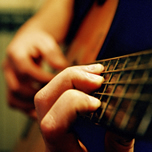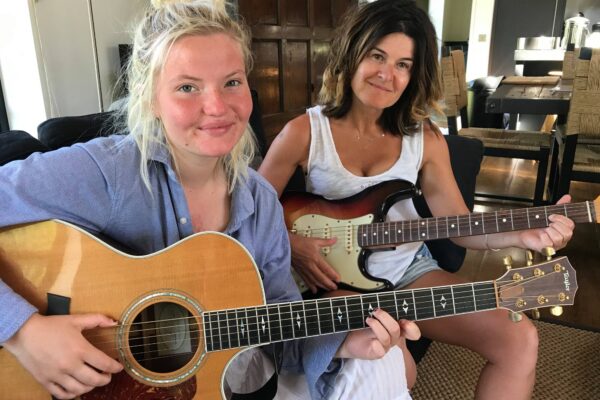Jazz Basics for Guitar
Jazz Basics for Guitar
- Chords: Chords are the foundation of jazz guitar playing. Familiarise yourself with the most commonly used jazz chords, such as major 7th, minor 7th, dominant 7th and half-diminished 7th chords. Start by learning to play these chords in different inversions and positions, and practice playing them in different keys.
- Scales: In jazz, it’s important to understand the relationship between chords and scales. Learn the major and minor scales, as well as the modes that are commonly used in jazz, such as the Dorian, Mixolydian, and Lydian modes. Start by playing these scales in different keys and positions on the fretboard.
- Arpeggios: Arpeggios are the notes of a chord played one at a time. Practicing arpeggios is a great way to improve your understanding of harmony and your finger dexterity. Start by learning to play simple arpeggios and gradually increase the complexity of the patterns you play.
- Improvisation: Improvisation is the process of creating music in real-time, based on your understanding of the harmony and structure of the song. To improve your improvisational skills, start by playing along with backing tracks and practicing simple phrases. Gradually increase the complexity of the lines you play, and focus on playing with good phrasing and tone.
- Swing: Swing is the rhythmic feel that is associated with jazz music. To get a good swing feel, practice playing eighth-notes in a rhythmic pattern that is evenly divided between the beats. Start by practicing with a metronome, and gradually increase the tempo as you become more comfortable with the feel.
- Blues: Blues is a common form in jazz, and it’s important to understand the basic structure and feel of a blues progression. Start by learning to play a simple blues progression, and then practice playing simple blues licks and solos.
- Listen: One of the best ways to improve your jazz guitar playing is to listen to great jazz guitarists. Make a habit of listening to different jazz styles and guitar players, and take notes on what you like about their playing.
Jazz guitar
These are just a few of the basic concepts and techniques that you’ll need to get started on your journey to playing jazz guitar. Remember that the key to success is consistent and focused practice. Set aside time each day to work on your playing, and focus on making progress in small, achievable steps. With time and dedication, you’ll be able to master these basics and become a great jazz guitarist!







